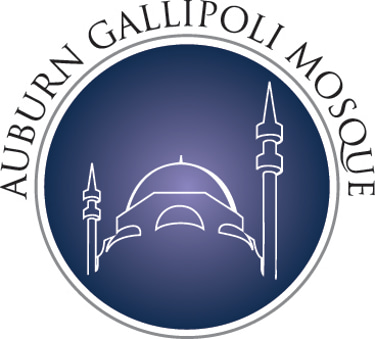The Holy Quran
Unlike the Torah, which was revealed on tablets to Moses in one session, the Qur'an was revealed orally over the 23 year mission of the Prophet Muhammad. The revelation was usually tied to certain events, the questions of believers or non-believers and on needs that appeared as early Muslim society developed. Sometimes a few verses, at other times whole chapters, were revealed in a variety of ways (Qur'an, 42:51).
Those people who witnessed the Prophet Muhammad when he received revelation say that he would be conscious throughout and start sweating even if it was a cold day. In his own words, the Qur'anic revelation come to him in four ways.
It sometimes came to him in a trance together with a ringing sound. Muhammad said that this was the hardest way of receiving revelation.
Sometimes revelation was given to him in his dreams.
On some occasions, revelations were implanted in his memory.
On other occasions, Archangel Gabriel would visit him in human form (sometimes visible to others) to deliver Qur'anic passages.
It is an essential part of Islam that Muslims are required to believe in all the prophets and the revelations sent to them throughout human history. Muslims believe that the Qur'an is the final version of God's revelation to humanity, confirming what was revealed before (Qur'an, 5:45). It is also a fact that Islam acknowledges the four inspired books - the Qur'an, the Laws of Moses, the Psalms of David and the Gospel of Jesus. (Also see my answers to Questions-14-15 on Islam's view of prophets and revelation.)
Since the Qur'an essentially contains truths of the previous revelations, "None of Our revelations do We abolish or cause to be forgotten, but We substitute something better or similar: Do you not know that God has power over all things?" (Qur'an, 2:106), average Muslims see no need to study the books that preceded it. The perspective of a Muslim is that whatever is true in other religions was revealed by God and is retained in the Qur'an and whatever has been added or altered by humans is omitted or corrected by the Qur'an.
The Qur'an and narratives about the Prophet Muhammad contain great detail about Judaism and Christianity. There is a chapter named after Mary. Moses' story is the most quoted story in the Qur'an. Muslims know more about Judaism and Christianity and about important figures in those traditions than many non-Muslims realise. Muslims also get daily advice and wisdom from the Qur'an, and from the sayings and the example of the Prophet Muhammad.
Nevertheless, ordinary Muslims who have the time and the inclination, as well as scholars who are interested in comparative religious studies, read the present forms of the Bible, Torah or any religious text of traditions other than Islam.
Compilation of the Quran
Unlike other revealed books, the Qur'an still maintains its authenticity. It is as fresh as if it had been revealed yesterday. The authenticity of the Qur'an is a historical fact. In its original Arabic form, millions of current copies of the Qur'an around the world are exactly the same. No one can show a copy of the Qur'an from the past or present which differs even slightly from other copies.
Even though Muslims take comfort in the Qur'anic claim that it is under the special protection of God (Qur'an, 15:9), they have been very careful to preserve the Qur'an themselves, starting with Muhammad himself. The Qur'an was preserved in three different ways in the lifetime of the Prophet Muhammad.
Written records
Systematic memorisation
Control A control mechanism
Since the Prophet Muhammad was illiterate, he had up to forty official scribes. The gradual revelation of the Qur'an over 23 years meant that the Prophet did not know when he would receive new revelation. Consequently, he would always have a scribe ready alongside him. When a new revelation was received, Muhammad would recite it to the scribe, who wrote it down on a parchment, a scroll of leather or whatever suitable material could be found. He would also mention the verse number or what part of the Qur'an the revelation belonged to. Muhammad then asked the scribe to read it back to him in order to check and correct it in case there were errors made in the writing process. Later, written passages of the Qur'an would be taken to the mosque for others to memorise and produce copies. Today, some of these original parchments are displayed in the Topkapi Museum in Istanbul, Turkey.
From early times, Muhammad asked his companions to memorise the passages of the Qur'an which had been revealed to him. As a result, hundreds of people knew the complete book by heart. Moreover, every Muslim had memorised significant portions of the Qur'an. The educational campaign of Muhammad also ensured that many people learnt how to read or write and consequently wrote out parts of the Qur'an for their personal records.
Even still, there was the possibility that people might make mistakes in the memorisation and copying process. This possibility was eliminated by a control mechanism of the public checking of the Qur'an. Every year in the month of Ramadan, the Prophet Muhammad would recite the whole Qur'an to an audience of all the Muslims, who in turn would check his words against their written copies and what they knew by heart. In the last Ramadan before his death, this control recitation was done twice in a row. The tradition of reciting the whole Qur'an in Ramadan and the memorisation of the whole Qur'an continues to the present day, and hundreds of thousands of Muslims know the whole Qur'an by heart.
After the death of the Prophet and those of a significant numbers of memorisers, the first caliph Abu Bakr established a committee under the chairmanship of the chief scribe of the Prophet, Zayd bin Sabit, to collect the Qur'an into a single volume. Although many people, including Zayd, knew the whole Qur'an by heart, the objective criterion of "citing at least two written records for every verse" was applied. This process took place transparently in public in the mosque. Thus, the complete Qur'an was established in book form within a few years of Muhammad's passing away.
Later on, as the Muslim world grew to include non-Arabic nations, new converts began to argue about the the correct way of pronouncing the Qur'an. People started to write personal copies of the Qur'an with the different ways of spelling some words. About twenty years after the Prophet, and upon the insistence of the companions of the Prophet, the third Caliph, Othman, decided to reproduce copies of the Qur'an from the original book written at the time of Abu Bakr. Seven copies of the Qur'an was reproduced from the original volume and sent to major Muslim capitals. This copying was done by a committee, again led by Zayd bin Sabit. The text of the Qur'an was also written more strictly to allow only the Meccan dialect so as to standardise its pronounciation and dialect in order to prevent difficulties and misunderstandings faced by non-Arabic speaking Muslims. He also stipulated that all subsequent copies of the Qur'an were to be produced from these copies. Two copies of the seven, one in Istanbul and one in Tashkent, survive to our time.
Content of the Qur'an
The Qur'an is a book of law, a book of prayer, a book of wisdom, a book of worship, a book or prophecy, a book of history and a unique Holy Book, comprising many books in one, and in which Muslims find wisdom and solutions for their spiritual and human needs.
The Qur'an is a book of 604 pages, 114 chapters and over 6,200 verses. Chapters and verses vary in length. The chapters are not like the ones we come across in regular books. In fact, the Qur'an is not organised like a conventional book at all. It is not divided into sections or specific parts that deal with one subject matter at a time. Rather it is an integral book where all subjects and meanings centre around a profound meaning and axis that diffuses through every chapter and verse of the book. This axis is the calling of all humans to the belief and worship of one God using their reason and free will. Although God has created all people as His servants without asking them first, He is inviting humanity to accept this honourable role of servanthood willingly. At the same time informing humans of the transience of this worldly life together with life's happiness, tribulations and the permanence of life after death. In a way, the Qur'an is composed to constantly remind the reader of this message throughout the book, irrespective of what the immediate subject matter of discussion might be.
The Qur'an has some very unique characteristics. When a person reads it you get the feeling that it is custom-written for you alone. Irrespective of your education level, you feel that it relates to you better than to anyone else. You never get the impression that it was revealed fourteen centuries ago. Perhaps, it is more relevant today than ever before in a world of spiritual deprivation.
Nevertheless, the Qur'an essentially focuses on four main subjects:
Monotheism: The Qur'an describes God, His existence and His unity. In doing so, it directs the attention of its readers to observe and reflect upon natural phenomena. The absolute authority of God is demonstrated in human history and the universe.
Prophethood: The Qur'an describes the need for prophets, their responsibilities and struggles in the cause of faith in the one God. It does not tell the stories of the prophets at great length, but rather highlights the vital details and aspects of their stories that point to the essential principles of life and humanity. The real heroes of the stories are not really the prophets but the principles that are in line with faith and the correct behaviour of model individuals faced with familiar human conditions. For example, in the story of Abraham, the real players are monotheism and polytheism and the conflict between them in human history.
Resurrection: The Qur'an proves the existence of resurrection by directing our attention to the continued resurrection that happens around us in nature. It describes in vivid detail life after death. It directs human attention to the permanence of life in the hereafter. The Qur'an gives glad tidings for people who recognise God and do good deeds and warns those people who take no heed of the justice of God.
Justice: The Qur'an describes justice, in the form of balance and harmony, seen in the universe. It asks humans to synchronise with this harmony by finding a wholesome balance within and with the social and natural environment. Every commandment of God contained in the Qur'an directs us to find the Sirat-al Mustakeem (the straight and balanced path) in our personal and social life. The legal verses in the Qur'an fall under the theme of "justice". The Qur'an has no more than 80 verses that can be categorised as strictly legal. It seeks to highlight principles of law rather than its detailed codification.
Auburn Gallipoli Mosque
A vibrant hub for worship and connection.
Tel: +61 2 9646 5972
Email: info@gallipolimosque.org.au
© 2024. All rights reserved.


